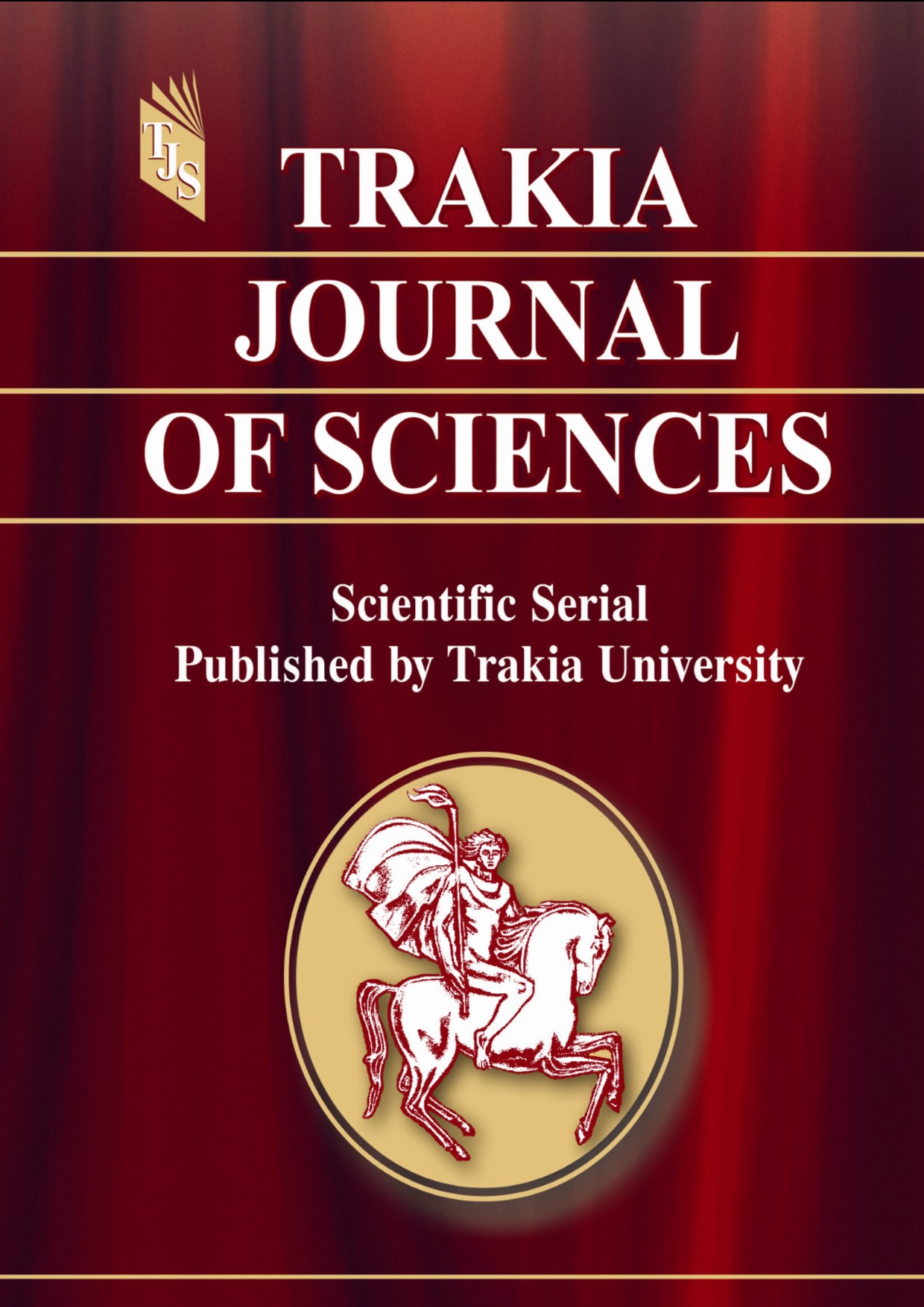THEORETICAL FRAMEWORK OF INTERCUCTURAL COMPETENCE ASSESSMENT TOOLS
DOI:
https://doi.org/10.15547/tjs.2024.s.01.017Keywords:
intercultural competence, assessment tools, pedagogical modelAbstract
The modern globalized and digitalized world required coaches and physical education pedagogues to apply different elements of intercultural competence in their everyday professional life. This necessitated the need for specialized training. PURPOSE: The goal of the present theoretical analysis was to provide detailed understanding and identify key components of various questionnaires in order to build-up a pedagogical model for acquiring intercultural competence among students in the field of sport and physical education. We have chosen to review validated and reliable tools, which would give us a complete picture related to our future research and model testing. METHODS: We have done a comparative theoretical analysis based on reliability, structure dimensions, and scope of the questionnaires. We have outlined specific features, strengths and weaknesses. RESULTS: As a result, we have revealed the existence of many assessment tools of intercultural competence but they need to be precisely selected and described in order to their potential usage in different contexts. Furthermore, the tools used independently could not give accurate and reliable information. They should be an integrated part of the global assessing model in accordance with the measurement goal. CONCLUSION: Referring to the comparative theoretical analysis, we could conclude that good and detailed knowledge about the content of existing assessment tools is a prerequisite for effective design of test batteries for measuring intercultural competence.
References
Hammer, M. R., Intercultural competence development. The SAGE encyclopaedia of intercultural competence. CA: SAGE Publishing, Inc., Thousand Oaks, MI, USA, 483-486, 2015.
Deardorff, D. K., Identification and Assessment of Intercultural Competence as a Student Outcome of Internationalization. Journal of Studies in International Education, 10:241-266, 2006.
Bennett, J. M. and Bennett, M. J., Developing Intercultural Sensitivity: An Integrative Approach to Global and Domestic Diversity. Handbook of Intercultural Training, SAGE Publishing, Inc., Thousand Oaks, MI, USA, 515, 2004.
Fantini, A.E., Reconceptualizing intercultural communicative competence: A multinational perspective, Research in Comparative and International Education, 15(2):52-61, 2020.
Spitzberg, B.H. and Changnon, G., Conceptualizing intercultural competence. The SAGE Handbook of Intercultural Competence. CA: SAGE Publishing, Inc., Thousand Oaks, MI, USA, 2-52, 2009.
Barrett, M., Intercultural competence. EWC Statement Series, 2: 23-27., 2012.
Arasaratnam, L. A., Intercultural Competence. Oxford Research Encyclopedia of Communication, 2016, https://oxfordre.com/communication/view/10.1093/acrefore/9780190228613.001.0001/acrefore-9780190228613-e-68, accessed on 14th September 2024.
Bennett, M. J., and Hammer, M. R. (1998). The intercultural development inventory (IDI) manual. The Intercultural Communication Institute., Portland, CO, USA, 1998.
Engle, L., and Engle, J., Assessing language acquisition and intercultural sensitivity development in relation to study abroad program design. Frontiers: The Interdisciplinary Journal of Study Abroad, 10:253–276, 2004.
Altshuler, L., Sussmanb, N. M. and Kachur, E., Assessing changes in intercultural sensitivity among physician trainees using the intercultural development inventory. International Journal of Intercultural Relations, 27:387–401, 2003.
Matveev, A. and Merz, M. Y., Intercultural competence assessment: What are its key dimensions across assessment tools? Toward sustainable development through nurturing diversity: Proceedings, 21st International Congress of the International Association for Cross-Cultural Psychology, 123-135, 2014.
Giromini, L., De Campora, G., Brusadelli, E. et al., Validity and Reliability of the Interpersonal Competence Questionnaire: Empirical Evidence from an Italian Study. J Psychopathol Behav Assess 38:113–123, 2016.
Kelley, C. and Meyers, J., Cross-Cultural Adaptability Inventory. National Computer Systems, Minneapolis, MN, USA, 1995.
Rahimi, E. Intercultural Competence Assessment Formats: Reliability and Validity Formats. Journal of Narrative and Language Studies, 7(13):221-258, 2019.
Davis, S. L. and Finney, S. J., A factor analytic study of the Cross-Cultural Adaptability Inventory. Educational and Psychological Measurement, 66(2): 318–330, 2006.
Bazgan,M., and Norel,M., Explicit and implicit assessment of intercultural competence. Procedia- Social and Behavioral Sciences, 76(15): 95–99, 2013.
Majumdar, B., Keystone, J. S., and Cuttress, L. A., Cultural sensitivity training among foreign medical students. Medical Education, 33:177-184, 1999.
DeWald, J. and Solomon, E, Use of the Cross-Cultural Adaptability Inventory to measure cultural competence in a dental hygiene program. Journal of dental hygiene: American Dental Hygienists' Association, 83.(3):106-10, 2009.
Ruben, B. D., Assessing Communication Competency for Intercultural Adaptation. Group and Organization Studies, 1:334-354, 1976.
Ruben, B. D. and Kealey, D, Behavioral Assessment of Communication Competency and the Prediction of Cross-cultural Adaptation. International Journal of Intercultural Relations, 3:15-48, 1979.
Sinicrope, C., Norris, J. and Watanabe, Y., Understanding and Assessing Intercultural Competence: a Summary of Theory, Research, and Practice (Technical Report for the Foreign Language Program Evaluation Project). Second Language Studies, 26(1):1-58., 2007
Bhawuk, D. P., and Brislin, R., The Measurement of Intercultural Sensitivity Using the Concepts of Individualism and Collectivism. International Journal of Intercultural Relations,16:413–436, 1992.
Altshuler, L., Sussman, N.M. and Kachur, E., Assessing Changes in Intercultural Sensitivity among Physician Trainees Using the Intercultural Development Inventory. International Journal of Intercultural Relations, 27(4):387-401, 2003.
Greenholtz, J. Assessing Cross-cultural Competence in Transnational Education: The Intercultural Development Inventory. Higher Education in Europe, 25(3):411–416, 2000.
Portalla, T. and Chen, G. M., The Development and Validation of the Intercultural Effectiveness Scale. Intercultural Communication Studies, 19(3):21-37, 2010.
Avcılar, A. and Gök, E., Intercultural Effectiveness of International and Domestic University Students: A Case of Turkey. Journal of International Students, 12(2):531-549, 2021.
Li, Z., An Empirical Study of Process-oriented Intercultural Teaching in Chinese College English Classroom. Journal of Language Teaching and Research, 7(3):527-533, 2016.
Bates, A. and Rehal, D.A., Utilizing the Intercultural Effectiveness Scale (IES) to Enhance International Student Travel, International Research and Review. Journal of Phi Beta Delta Honor Society for International Scholars, 7(1):44-53, 2017.

Published
Issue
Section
License
Copyright (c) 2025 Trakia University

This work is licensed under a Creative Commons Attribution-NonCommercial 4.0 International License.


